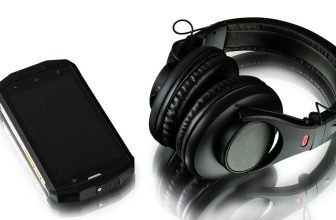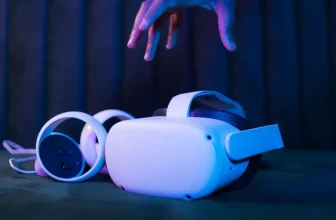

If you're in the market for wireless headphones and value battery life, you'll want to know which models stand out for their extended usage. Imagine being able to enjoy uninterrupted music or calls throughout your day without worrying about constantly recharging. The right pair of headphones can make all the difference in your listening experience, especially when you're on the go or need a reliable companion for long hours. So, which wireless headphones truly excel in this aspect? Let's explore some top contenders and what sets them apart in terms of battery performance.
Top Wireless Headphones With Long Battery Life
When choosing wireless headphones with long battery life, prioritize brands known for their exceptional power efficiency. Brands like Sony, Bose, and Jabra are renowned for their ability to optimize battery performance, ensuring that your headphones last through extended listening sessions.
Sony's WH-1000XM4 boasts an impressive 30 hours of battery life on a single charge, perfect for long flights or workdays. Bose QuietComfort 35 II follows closely behind with up to 20 hours of wireless playback, ideal for daily commutes or gym sessions. Jabra Elite 85h offers a competitive 36 hours of battery life, making it a reliable choice for those always on the move.
Battery Performance Comparison of Wireless Headphones
For a comprehensive comparison of battery performance among wireless headphones, evaluate the hours of playback offered by popular models.
When looking at wireless headphones, battery life is a crucial factor to consider. Some models boast impressive battery performance, offering up to 40 hours of playback on a single charge. However, others may only provide around 15-20 hours of continuous use. It's essential to balance your need for long-lasting battery life with other features you desire in headphones.
Keep in mind that the advertised battery life may vary based on factors such as volume levels, connectivity options, and usage patterns. Be sure to read user reviews and expert opinions to get a better understanding of how different wireless headphones perform in real-world scenarios.
Factors Affecting Wireless Headphones Battery Life
Various factors influence the battery life of wireless headphones, impacting their overall performance and user experience.
The design of the headphones plays a crucial role in determining battery life. Larger headphones may have more space for a bigger battery, thus potentially offering longer usage time compared to smaller, more compact models.
Additionally, the efficiency of the Bluetooth technology used is a significant factor. Newer versions of Bluetooth, like Bluetooth 5.0, are more energy-efficient, leading to extended battery life.
The volume at which you listen to music or make calls can also affect battery longevity. Higher volume levels generally drain the battery faster than lower volumes.
Furthermore, the type of audio content being played can impact battery life; streaming high-quality audio or engaging in long phone calls may consume more power than listening to lower-quality audio files.
Tips to Extend Battery Life of Wireless Headphones
To maximize the battery life of your wireless headphones, consider adjusting the EQ settings to optimize power consumption. Equalizer settings can significantly impact how much power your headphones use. Typically, lowering the bass levels can help conserve battery life since bass frequencies require more power to reproduce. Additionally, reducing overall volume levels can also extend the time between charges.
Another tip to prolong your wireless headphones' battery life is to turn off any extra features when not in use. Features like active noise cancellation or ambient sound modes can drain the battery quickly. Only activate these features when necessary to conserve power.
Furthermore, remember to keep your wireless headphones in their case when not in use. Most cases provide charging capabilities, ensuring your headphones are always ready to go. Properly storing your headphones can help maintain battery health and longevity.




